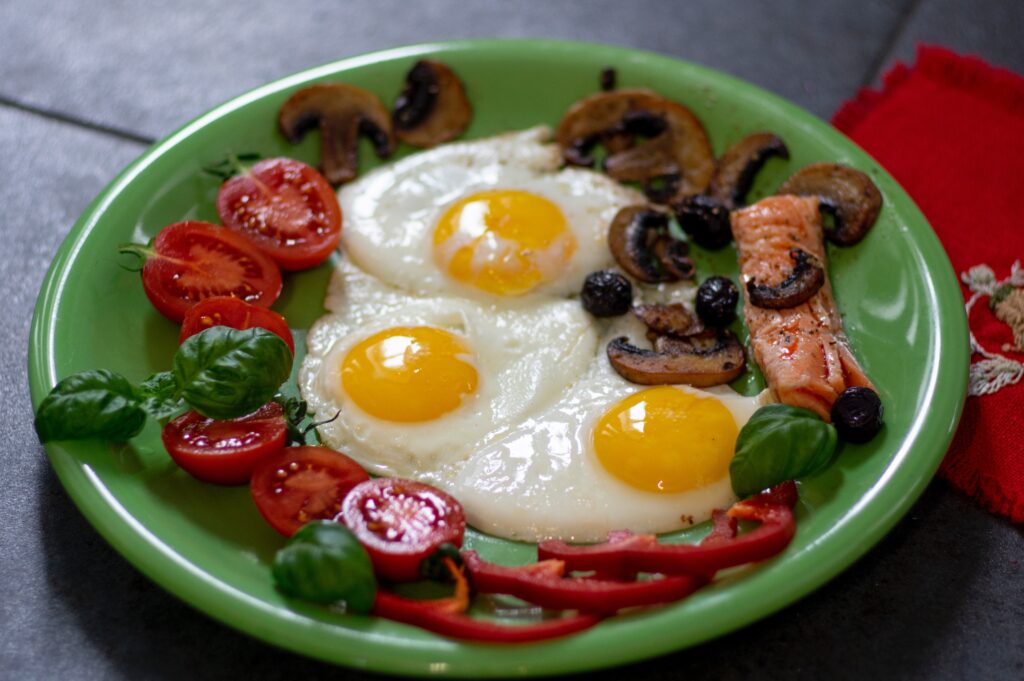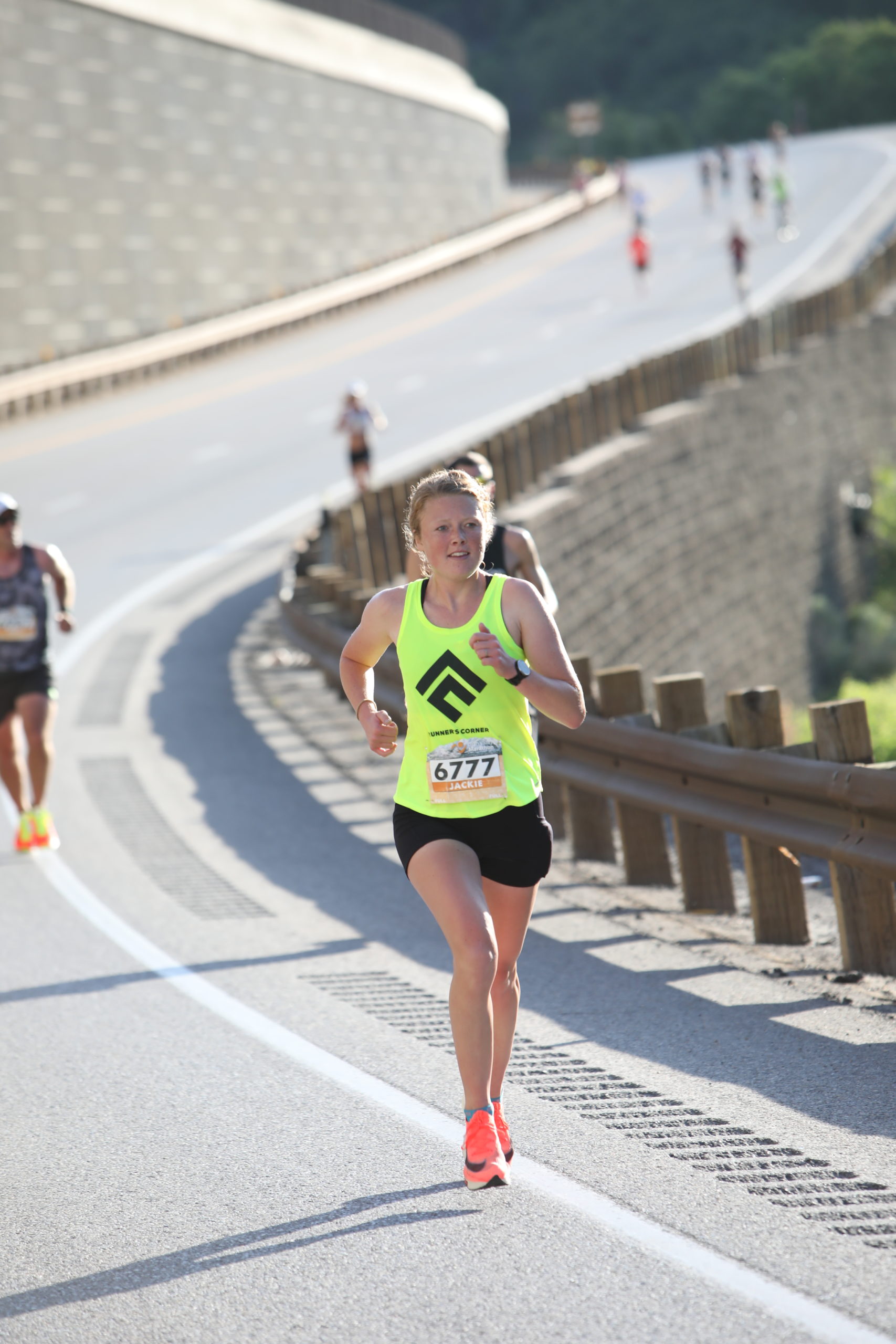Supplement Recommendations for Female Athletes

Generally speaking, athletes love supplements! A large proportion of the supplements on the market are geared for athletes. In many ways, this makes sense. After putting in hours of work every week to achieve difficult goals, why wouldn’t an athlete take 10 seconds a day to swallow a few pills they believe will guarantee their success? While many athletes are taking more supplements than what is necessary or helpful, here are a few supplement recommendations for female athletes.
Supplement Recommendations For Female Athletes
Iron
Iron is an essential mineral found in our bodies that helps transport oxygen through our blood. Endurance athletes have a high demand for this oxygen in their bloodstream as the vast majority of their races are performed aerobically (aka dependent on oxygen for performance).
Premenopausal female athletes are at a slightly higher risk for iron deficiency than male athletes due to monthly menstrual cycles and greater iron loss through red cell break-down, losses in sweat, gastrointestinal bleeding, and increased inflammatory markers that can inhibit the absorption of iron.
Assuring adequate iron stores for the female athlete will improve overall energy levels, maximum power, and exercise efficiency. Female athletes have a higher iron requirement than the general population and typically perform best when they have ferritin levels between 40-150 ng/mL. Prior to supplementing with iron, I highly recommend getting your ferritin levels checked in order to determine the most appropriate treatment plan. This will help you avoid toxic levels of iron that can cause similar symptoms to iron deficiency.
The Most Absorbable Form Of Iron
For most athletes, intentionally increasing the amount of iron from food sources will be a sustainable way to maintain adequate iron levels. The most absorbable forms of iron are found from heme iron foods which include red meat, chicken, turkey, and seafood. Plant-based foods that are rich in non-heme iron include white beans, spinach, kale, and fortified foods (such as cereal). Always pair iron-rich foods with vitamin C-rich foods to help increase iron absorption in your body. Avoid pairing iron-rich foods with calcium-rich foods.
In many cases, however, an iron supplement may be your best bet. Athletes who are extremely deficient, on a time-crunch to improve ferritin levels in the weeks before a key event or who have tried increasing iron sources from food without much success are excellent candidates for a supplement. Athletes should get their ferritin levels checked regularly in order to assure proper dosage and usage of iron supplements.
Vitamin D
This probably isn’t your first time hearing about the benefits of vitamin D for endurance athletes, and for good reason! Vitamin D improves bone health, muscle mass, strength, immune health, sleep regulation, hormone regulation, and aids in weight maintenance. Athletes will obtain obvious performance benefits from having adequate levels of vitamin D. As with iron, I recommend focusing on a food-first approach, followed by a supplement if needed.
Best food sources:
- Fatty fish (salmon, mackerel, tuna, halibut, etc.)
- Egg yolks
- Mushrooms
- Vitamin D fortified dairy products (yogurt, cheese, milk)
- Vitamin D fortified plant milk products (almond, cashew, coconut, etc.)
Things to look for in a supplement (if you find you are still low after trying to incorporate more vitamin D foods & sunshine in your life):
- Optimal dose: 1,000-5,000 IU/day
- Optimal form: D3
- Going over 5,000 IU/day can lead to vitamin D toxicity which has similar effects to vitamin D deficiency. Yikes!
ADVERTISEMENT

Pre-Period Combo: Zinc, Magnesium, Baby Aspirin, and Omega-3
Premenopausal female athletes with normal menstrual cycles have the opportunity to perform better as a result of their cycle than if they were not to have one at all. Due to the nature of the cycle, however, there will be periods of time where a female athlete is more likely to perform and feel at their best and times of the cycle where optimal performance will be harder (but not impossible) to achieve. During a woman’s luteal phase, or high hormone phase, athletes may find it more difficult to feel energized and have that extra pep in their step.
Much of this sluggish feeling comes from an increase in inflammation. Dr. Stacy Sims, a female-athlete nutrition expert suggests the following combination of supplements to help reduce PMS symptoms related to inflammation. Female athletes can try taking this for the week leading up to the start of their period.
- 250 mg magnesium
- 45 mg zinc
- 80 mg baby aspirin
- 1000 mg omega-3 fatty acids from flaxseed and/or fish oil
Performance Combo: Beta Alanine, Caffeine, Nitrate
When it comes to performance, there are a few supplements women should consider taking at key times when racing or trying to perform optimally. Using these supplements on a daily basis will not provide a greater benefit and may in fact be harmful. More research is needed in order to definitively say what kind of dosage is best for women specifically. Starting with smaller doses and seeing how your body reacts to each is a viable strategy for finding what works best for you personally.
Beta Alanine
Beta-alanine is an amino acid that helps buffer lactic acid build-up in the bloodstream. It also helps delay neuromuscular fatigue & helps improve performance particularly in high-intensity exercise lasting 1-4 minutes long. For longer endurance events, beta-alanine is helpful for improving top end speed in a finishing kick. A recommended starting dose would be 4-6 grams each day for 2-4 weeks before a key race or event. It is not uncommon to feel a tingling sensation when using beta-alanine due to the vasodilation effect. If you experience this, try taking a smaller amount.
Caffeine
Caffeine is one of the most widely studied and accepted supplements for endurance athletes to consider taking. Energy is not ‘provided’ to our body per say, but rather delays our perception of fatigue. The mental boost from caffeine provides a physical boost in our ability to perform at high levels. Recommended levels of caffeine to be taken for performance are 3-6 mg per kilogram of body weight. In my experience, this volume of caffeine is highly appropriate for regular caffeine drinkers, but athletes who do not consume caffeine on a daily basis will achieve a similar performance benefit with smaller amounts.
When finding your optimal dose of caffeine, watch for signs of gastrointestinal distress, jitteriness, or an uncomfortably high heart rate. Reduce caffeine intake (or consider omitting it from your routine) if you experience these symptoms in a way that reduces your ability to perform at your best.
Nitrates
Nitrates have been shown to improve skeletal muscle efficiency. This allows athletes to tolerate high-intensity exercise for a longer duration of time than what they would be able to do otherwise. Beetroot juice is one of the best sources of nitrate. Studies have shown that taking 400-500 mL of beetroot juice 150 minutes before an event can be a potential way to improve performance. Most studies do not have athletes supplement on a daily basis, but rather just for 6-7 days before their key event/time trial. You can find beetroot juice at your local grocery store, juice beets yourself, or even purchase powdered versions. Using nitrates to enhance performance is something I particularly recommend for athletes who do not tolerate caffeine very well. Both nitrates and caffeine have been shown to improve performance, but their benefits are not doubled when taken together.
Simple Takeaways
Simply put, female athletes should be aware that supplementing with the following nutrients may enhance their performance: iron, vitamin D, zinc, magnesium, omega-3, beta-alanine, caffeine, and nitrates. This does not mean every female athlete *should* be supplementing with these nutrients, but these are the most reliable ones to keep on the radar.
With this said, it is vital to remember that no supplement will take away the need for a diet that provides an athlete with adequate amounts of food, regardless of the quality of that food. Period. Choosing foods that are balanced and varied in their nutrient profile is the next step to ensuring an adequate intake of nutrients, with supplementation being the last thing an athlete should consider in regards to improving their performance through nutrition.
Just because a nutrient has been proven to be beneficial does not necessarily mean that more is always better. Many nutrients when taken in excess can be linked to more concerning health problems. Always discuss a decision to supplement with a qualified health provider in order to receive the most accurate advice for your needs personally.
Lastly, if choosing to supplement, make sure to choose products that are third-party certified to ensure higher quality & safety of those particular supplements. NSF Sport Certified supplements also guarantee that the product has been evaluated for harmful ingredients that may disqualify an athlete from competition.
Happy competing!
References
- Sims S. Roar. High Performance in a Pill? Published in 2016 by Rodale Books. Pages 233-240.
- Alaunyte I, Stojceska V, Plunkett A. Iron and the female athlete: a review of dietary treatment methods for improving iron status and exercise performance. J Int Soc Sports Nutr. 2015 Oct 6;12:38. doi: 10.1186/s12970-015-0099-2. PMID: 26448737; PMCID: PMC4596414.
- Braun, Perrin. Got Fatigue? Increase Your Ferritin! Inside Tracker. https://blog.insidetracker.com/got-fatigue-increase-your-ferritin. Published May 12, 2022. Accessed Jun 5, 2023.
- Featherstone Meaghan. Evaluating Iron Status in Endurance Athletes. https://www.featherstonenutrition.com/evaluating-iron-status-in-endurance-athletes/. Accessed Jun 5, 2023.
- Kobayashi Y, Imai N, Uenishi K. Attempt to Determine the Cut-Off Value of Serum Ferritin for Iron Deficiency in Male College Student Runners. J Nutr Sci Vitaminol (Tokyo). 2020;66(5):432-440. doi: 10.3177/jnsv.66.432. PMID: 33132346.
- Clénin G, Cordes M, Huber A, Schumacher YO, Noack P, Scales J, Kriemler S. Iron deficiency in sports – definition, influence on performance and therapy. Swiss Med Wkly. 2015 Oct 29;145:w14196. doi: 10.4414/smw.2015.14196. PMID: 26512429.
- Vitamin D: Fact Sheet for Health Professionals, National Institutes of Health, https://ods.od.nih.gov/factsheets/VitaminD-HealthProfessional/, updated August 17, 2021, accessed November 30, 2021.
- Blander G, Ward C, In Defense of Vitamin D: The Facts You Need to Know, Inside Tracker, https://blog.insidetracker.com/in-defense-of-vitamin-d, published April 28, 2021, accessed November 30, 2021.
- Braun P, Are You Deficient in Vitamin D?, Inside Tracker, https://blog.insidetracker.com/are-you-deficient-in-vitamin-d, published March 24, 2020, accessed November 30, 2021.
- Aranow C. Vitamin D and the immune system. J Investig Med. 2011;59(6):881-886. doi:10.2310/JIM.0b013e31821b8755
- Fiammetta R ,Giovanna M ,Elea DI, et al. “Vitamin D and Sleep Regulation: Is there a Role for Vitamin D?”, Current Pharmaceutical Design 2020; 26(21) . https://doi.org/10.2174/1381612826666200310145935
- Sims S. Roar. Demystifying and Mastering Your Menstrual Cycle. Published in 2016 by Rodale Books. Page 33.
- Murphy MJ, Rushing BR, Sumner SJ, Hackney AC. Dietary Supplements for Athletic Performance in Women: Beta-Alanine, Caffeine, and Nitrate. Int J Sport Nutr Exerc Metab. 2022 Feb 23;32(4):311-323. doi: 10.1123/ijsnem.2021-0176. PMID: 35196646.
- Santana JO, de Freitas MC, Dos Santos DM, et al. Beta-Alanine Supplementation Improved 10-km Running Time Trial in Physically Active Adults. Front Physiol. 2018;9:1105. Published 2018 Aug 8. doi:10.3389/fphys.2018.01105
- Trexler ET, Smith-Ryan AE, Stout JR, et al. International society of sports nutrition position stand: Beta-Alanine. J Int Soc Sports Nutr. 2015;12:30. Published 2015 Jul 15. doi:10.1186/s12970-015-0090-y
- Rosenbloom, C. Sports Nutrition: A Practice Manual for Professionals. 5th Edition. Supplements. Academy of Nutrition and Dietetics. 2012.
- Domínguez R, Cuenca E, Maté-Muñoz JL, et al. Effects of Beetroot Juice Supplementation on Cardiorespiratory Endurance in Athletes. A Systematic Review. Nutrients. 2017;9(1):43. Published 2017 Jan 6. doi:10.3390/nu9010043
Advertisement

Jackie Hendrickson RD, MPH is a registered dietitian with a Masters Degree in public health nutrition from Utah State University. Jackie is the owner of Enduura Nutrition and loves coaching her athletes to their athletic potential through sustainable training & nutrition principles. She is an avid road & trail marathoner with a background in collegiate track, cross country, and competitive swimming. Jackie and her husband, Adam, were teammates in college and continue to pursue their running goals together. They live in beautiful Ogden, Utah with their 2 year old son, Lincoln.









